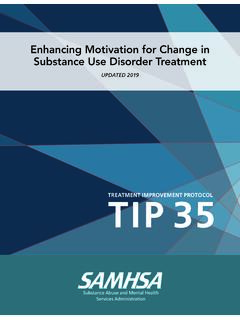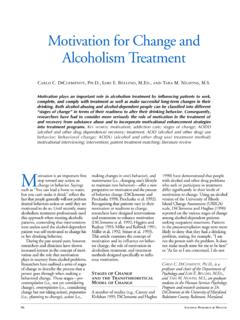Transcription of Out of routine
1 Out of routine : A review of sudden unexpected death in infancy ( SUDI ) in families where the children are considered at risk of significant harmFinal reportJuly 2020 DRAFT Crown copyright 2020 This publication (not including logos) is licensed under the terms of the Open Government Licence except where otherwise stated. Where we have identified any third party copyright information you will need to obtain permission from the copyright holders view this licence:visit to Information Policy Team, The National Archives, Kew, London, TW9 4 DUAbout this publication:enquiries CHILD SAFEGUARDING PRACTICE REVIEW PANELOUT OF routine : A REVIEW OF SUDI IN FAMILIES WITH CHILDREN AT RISKC ontentsForeword 4 Executive summary 6 Introduction 111.
2 The review question 122. Methods 14 Key findings 163. Findings 174. What are the nature and circumstances of SUDI in families with children at risk? 185. How effective are local arrangements for promoting safer sleeping and reducing the risk of SUDI? 25 Learning and recommendations 346. Key learning 357. A proposal for a prevent and protect practice model for reducing the risk of SUDI 408. Leadership and learning in localities 439. Recommendations 44 Conclusion 46 Appendices 47 Appendix A.
3 Case visit criteria 48 Appendix B. Specification for fieldwork visits 49 Appendix C. List of stakeholders consulted 51 Appendix D. Literature review methods 52 Appendix E. Glossary of terms 54 DRAFT4 OUT OF routine : A REVIEW OF SUDI IN FAMILIES WITH CHILDREN AT RISKTHE CHILD SAFEGUARDING PRACTICE REVIEW PANELF orewordThe sudden and unexpected death of an infant is one of the most devastating tragedies that could happen to any family. In spite of substantial reductions in the incidence of sudden unexpected death in infancy (SUDI) in the 1990s, at least 300 infants die suddenly and unexpectedly each year in England and 1 NHS Digital (2019). Child Death Reviews: year ending 31 March 2019.
4 The overall reduction in incidence, however, there has been a steady shift towards these tragedies happening predominantly in families from deprived socio-economic P. S. Blair, P. Sidebotham, P. J. Berry, M. Evans, P. J. Fleming (2006). Major epidemiological changes in sudden infant death syndrome: a 20-year population-based study in the UK. Lancet 3 67: 314 19. Increasingly, these deaths occur in families whose circumstances put them at risk, not just of SUDI, but of a host of other adverse outcomes. Many of the recognised risk factors for SUDI overlap with those for child abuse and neglect. And this is reflected in the experience of the national Child Safeguarding Practice Review Panel.
5 Of the 568 serious incidents notified to the Panel between June 2018 and August 2019, 40 involved infants who had died suddenly and unexpectedly, making this one of the largest groups of children , most of these deaths are preventable. The risk factors for SUDI are well recognised, and the steps parents can take to reduce the risk have formed part of the clear, consistent and evidence-based safer sleep messages for years. In spite of this, it is apparent that while the safer sleep messages may be rigorously delivered by health professionals, many of those families who are most at risk are either unwilling or unable to receive or act on those lessons for a multitude of reasons.
6 It seems clear to us, as a Panel, that something needs to change in the way we work with these most vulnerable families if we are to prevent more infants lives being lost through avoidable SUDI. And to bring about more effective working, we need to have a better understanding of the circumstances in which these babies are dying, how and why their parents are making choices about their infants care and sleeping arrangements, and how practitioners are seeking to engage and work with families whose children are at commissioned this, our second national thematic review, to explore these areas, drawing on a combination of fieldwork, roundtable discussions and a review of the published literature.
7 The review has identified a number of issues that have helped inform the development of a prevent and protect practice model. We believe this model, if embedded in practice, has the potential to improve the way we work with families with children at risk, specifically to reduce the risks of SUDI, and beyond that, to address a much wider range of risks to their children s health, safety and development. SUDI prevention has all the hallmarks of other DRAFT5 THE CHILD SAFEGUARDING PRACTICE REVIEW PANELOUT OF routine : A REVIEW OF SUDI IN FAMILIES WITH CHILDREN AT RISK safeguarding work and should be understood as such. It is not something that can be left solely within the remit of public health officials, or relegated to the handing out of a health promotion leaflet.
8 Rather, it needs to be embedded within respectful and authoritative relationship-based safeguarding practice. Our hope is that the lessons from this review will be carefully considered by safeguarding partners and by all practitioners working with children and are extremely grateful to our two reviewers, John Harris and Geoff Debelle, for the tireless work they put into the field visits and case reviews, and for pulling together the learning arising from that work. We are also grateful to the research team, led from the University of Bristol, who carried out the thorough and comprehensive literature review. And finally, thank you to the Panel secretariat for all their work behind the scenes to enable the review to take place and come to Sidebotham, Sarah Elliott, Susan TranterOn behalf of the National Child Safeguarding Practice Review PanelA note on terminologyWe were very aware, in writing and editing this report, of the dangers inherent in our use of language, and in particular of labelling children, parents and families in ways that are potentially demeaning and disempowering.
9 The focus of our review has been on families with children who are considered to be at risk of significant harm through abuse or neglect. Our use of the term families with children at risk is a shorthand for this. In using this terminology we recognise that all families contain a complex nuance of resilience, vulnerability and risk, strengths and weaknesses, agency and limitations. The term sudden unexpected death in infancy (SUDI) is a descriptive term, used at the point of presentation of any infant whose death was not anticipated (see glossary). We have chosen to use this term throughout, rather than the narrower term sudden infant death syndrome (SIDS), recognising that SUDI includes both deaths for which an explanation (medical or external) is ultimately found and those that remain unexplained.
10 Many of the risks, particularly situational and circumstantial risks, are similar regardless of the underlying cause. DRAFT6 OUT OF routine : A REVIEW OF SUDI IN FAMILIES WITH CHILDREN AT RISKTHE CHILD SAFEGUARDING PRACTICE REVIEW PANELE xecutive summaryIntroductionThis review of sudden unexpected death in infancy (SUDI) in families where children are considered at risk of significant harm is the second national review commissioned by the Child Safeguarding Practice Review Panel (the Panel). Infants dying suddenly and unexpectedly represent one of the largest groups of cases notified to the Panel, with 40 notifications between June 2018 and August 2019.













